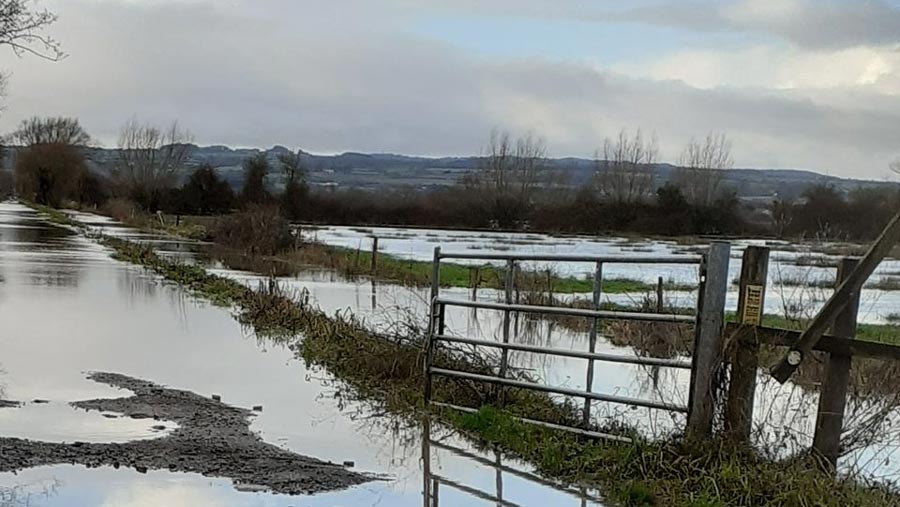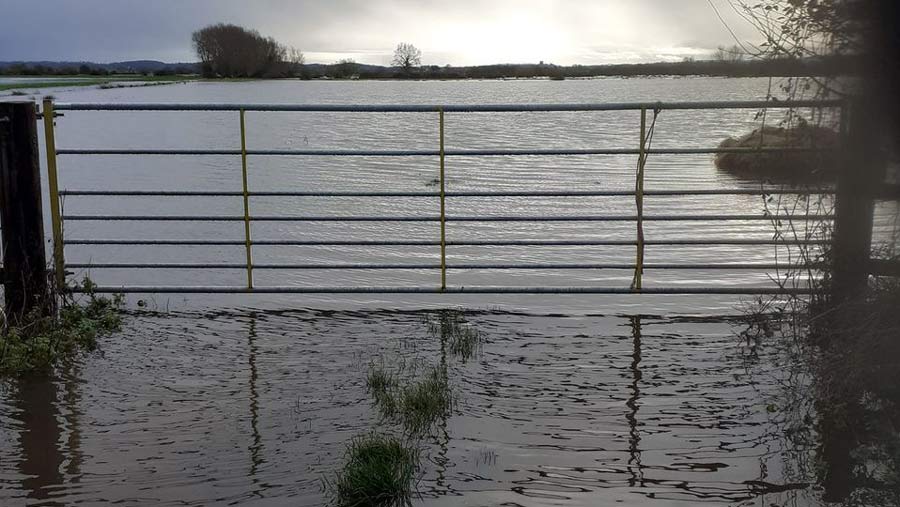Flooded farmer criticises Environment Agency for slow response
 © James Winslade
© James Winslade A Somerset beef farmer has criticised government red tape and paperwork for delays to pumping out water from his flood-ravaged fields.
James Winslade, who runs West Yeo Farm, in Moorland, near Bridgwater on the Somerset Levels, said around three-quarters of his farm (around 240ha) is submerged in water, which is up to 4ft deep in places.
He said the farm flooded after several inches of rain fell over three successive days last week.
See also: Q&A: What are your rights when farmland is flooded?
Mr Winslade said he had been asking the Environment Agency (EA) since 5 January to supply additional pumps to use to remove the floodwater from his fields and into the River Parrett.
We’ve been asking for pumps since the 5 of jan and we keep being told by EA bosses that they are on there way , the pumps are only 5 miles away in their depot , as farmers and businesses owners you see a problem and sort it straight away I am more than disappointed 🤷♂️🤦♂️ pic.twitter.com/WYiniwHL2g
— James Winslade (@westyeo) January 15, 2023
On 7 January, the trigger points for receiving the pumps, which are located five miles away in Bradney, were met.
The farmer thought the pumps would be delivered straightaway, but EA officials told him they could not be in place for another seven to 10 days due to bureaucracy.
Mr Winslade said there are two pumps at Saltmoor and four at Northmoor, which are permanently in place, and these were working.
The EA installed an additional six pumps at Saltmoor pumping station on Sunday 15 January and an additional two pumps will become operational on Tuesday (17 January).
The agency also plans to use a crane to install 10 more pumps at Northmoor.
“Surely, things have got to be made easier and quicker. With global warming and weather patterns as they are now, things have changed since the 2014 floods,” said Mr Winslade.
“They have got the technology, the wherewithal and the money to be in front of this. It has taken them by surprise, but the EA needs to revise its trigger points and protocols.
“The government agency needs to have less red tape and let the men on the ground get on with it and listen to local drainage boards.”
Crops and grassland under water

© James Winslade
Mr Winslade said the land under water includes wheat, oats, grass leys, cover crops and permanent pasture.
Until the floodwaters recede, he will not know the extent of the damage, but he is expecting to have to buy in forage for his cattle, which are currently housed.
He fears huge amounts of wildlife have also been lost, including hares, water voles and field mice.
The government does not pay any compensation for his land flooding, and Mr Winslade cannot get insurance to cover flood damage to fields.
“The EA and government’s cost structures for flooding do not class farmland as affecting a business, which is completely wrong,” he added.
“We are a business, we employ people and grow food for the nation, which is especially needed given the Ukraine war.”
Ian Withers from the EA said they will “learn from the situation and do better” and revise their models and responses.
“The way that rain falls is changing, there are no longer steady periods of rain, but instead, they are more intense and shorter,” he added.
Additional pumps at Northmoor will become operational later, he confirmed.
